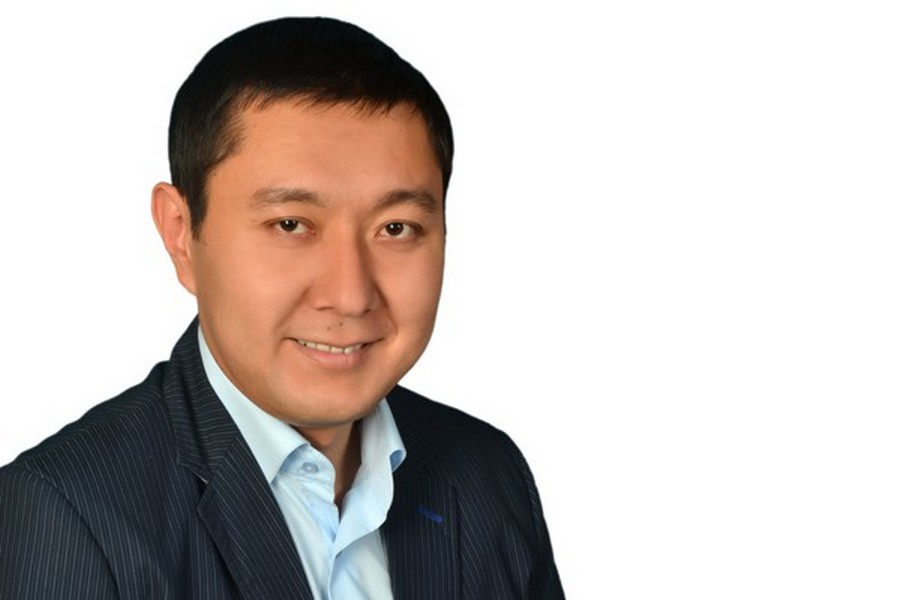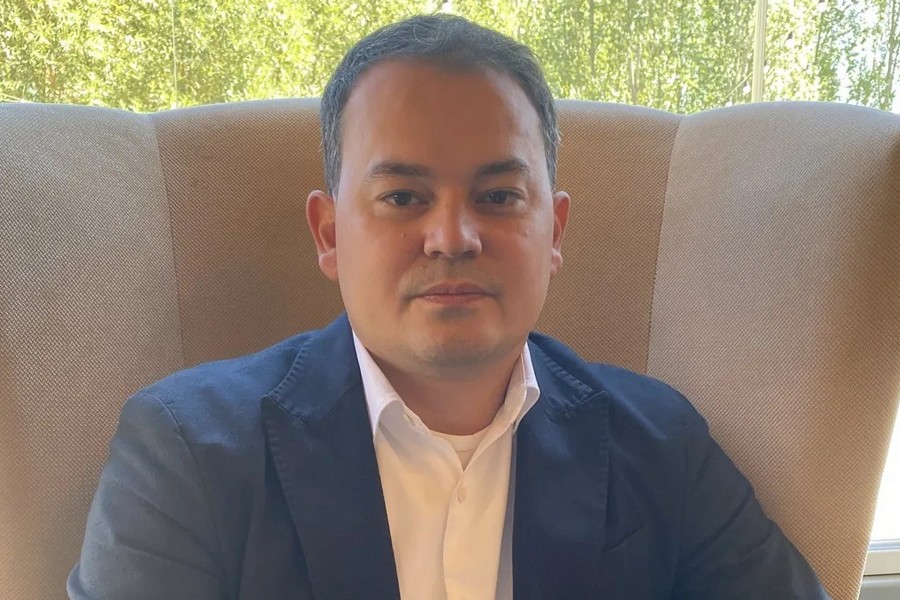Deputy General Director of ArcelorMittal Aktau Nurlan SEITOV:
THE YEAR 2016 IS MARKED WITH THE ABUNDANCE OF ORDERS FROM THE OIL AND GAS INDUSTRY

Pipe Plant ArcelorMittal Aktau is 10 years old this year. Over this time the company has managed to establish cooperation with the major oil and gas companies Karachaganak Petroleum Operating BV, Tengizchevroil, managed to supply pipes for domestic gas and oil pipelines. Deputy General Director of ArcelorMittal Aktau Nurlan SEITOV told Interfax-Kazakhstan about future plans and the situation in the pipe products market.
- Nurlan Atazhanovich, what was the plant's output in 2015?
- Unfortunately, the year 2015 was not very good for us. It was a tough financial situation not only for us but for the whole of Kazakhstan. In 2015 we shipped about 10,000 tonnes. This is due to the fact that many projects in Kazakhstan got mothballed; those very projects under which we had planned to deliver our products. This trend has been, in fact, continuing this year. Many projects are being cut down. But, at the same time, in 2016 we increased production to 15,000 tonnes. We already see that this year we will have shipped 15,000 tonnes.
- What projects have been mothballed?
- This is, as a rule, regional projects to replace pipes for heat and water supplies.
- How many products were shipped for export in 2015?
- The main shipping operations, almost 100%, covered the domestic market. This year we have shipped our products to Ukraine. A small volume of about 500 tonnes. Our customer there is our subdivision ArcelorMittal Kryviy Rih.
- Who are your main customers in Kazakhstan?
- The year 2016 in this regard has been remarkable for us, because this year we have had a good package of orders from the oil and gas industry. Now almost all the major oil and gas, and not only Mangistau region-based companies, these are JSC OzenMunaiGas, JSC Karazhanbasmunai, Ken-Kurylys-Service LLP, Water Transportation Management LLP - all of these companies buy pipes from us. Thus, we can say, ArcelorMittal Aktau supplies [pipes] to almost 100% Mangistau region. We supply these companies with a wide range of our large-diameter pipes.
We have gone further in our cooperation with the oil and gas companies, in particular, we put anti-corrosion coatings, both external and internal, on pipes supplied to Ozenmunaygaz. For various applications we offer relevant types of coatings. This can be both external epoxy coating and three-layer polyethylene. For epoxy coating we use the technology that has two functions: corrosion prevention and markings. Thus, water pipes are painted blue, gas pipes yellow. Not a conventional paint is applied to this but a corrosion prevention coating. In addition, we can say that we have secured the extended pipe service life. Ozenmunaigaz pipes used to break quickly. They have such aggressive sections where pipes used to break within a year. Now we have managed to extend the pipe service life twice as long, and, perhaps, they will function even longer.
10 years in the market, in fact, for the industry like ours, are a little time because we are competing with the giant Russian plants, which have had big experience and big history. As a rule, in such oil and gas projects everyone asks about work experience as students graduating from a university. And what kind of experience can be if the company was recently created? In 2009-10, the plant already passed a running-in period and entered the oil and gas market. It was very hard to enter this market. Everyone asked for experience in the oil and gas sector.
- Are you cooperating with the major oil and gas companies such as JSC Tengizchevroil and KPO?
- We started to cooperate with Tengizchevroil long ago. At the moment we are signing a long-term contract aimed at the Future Growth Project and current projects. We plan to work with JSC Tengizchevroil on applying external corrosion prevention coatings. Previously such orders were placed with the French plants. Now the process of agreeing the details is underway.Unfortunately I cannot say the contract value.
As for the piping, the oil and gas companies you mentioned use slightly different types of pipe products. We use large-diameter pipes; they are mainly used by the transportation companies such as JSC KazTransOil, JSC Intergas Central Asia.
By the way, I would like to tell about our recent achievement - we started working with KazTransOil. We have worked out various projects for about 10 years. This year KazTransOil considered that we reached the level when [they] can work with the Kazakh producer. We have clearly shown this working with OzenMunaiGas, Karazhanbasmunai. This year we have yet got a small volume from KazTransOil. This is the reconstruction project Astrakhan-Mangyshlak. Several more projects are planned for next year, on which we have been holding negotiations with KazTransOil. There is big possibility that our Kazakhstan piping made by ArcelorMittal Aktau will be used in these projects. The local content share of these pipes amounts to 98-99%. Starting from iron ore mining, metal smelting and up to steel pipe production - all is done in Kazakhstan. The process involves nearly 30,000 people.
- What about the amount and volume?
- For the time being the project is small this year. We are talking about the order of 600 tonnes. I cannot say the contract value. But next year we expect that around 20,000 tonnes of products will be produced under the KazTransOil project.
By the way, as for transportation companies; I would like to point out the significant work in the field of pipeline systems. This year ArcelorMittal Aktau successfully supplied pipes for several gas pipelines - one pipeline in West Kazakhstan region, and another in Kyzylorda region.
- How are things with the plant capacity utilization? As far as I know, there used to be problems due to lack of orders.
- For now the plant capacity utilization remains unsatisfactory. This is due to the fact that we have to constantly fight a stereotype that our design institutes, end users have formed; this is the stereotype about using only longitudinally welded pipes. As you know, Kazakhstan's industry somehow has been always in one way or another oriented towards the Russian industry. The Russian industry has six giant pipe plants, which supplied pipe products to the whole of the former Soviet Union. Of them, only one plant produces spirally welded pipes. This stereotype remains. The longitudinally welded pipes are specified in all the projects. Our plant produces spirally welded pipes. Many [of customers] have never dealt with spirally welded pipes while longitudinally welded pipes have been [always] available. All of the Russian plants supply only longitudinally welded pipes. Therefore, this practice is now being passed by experienced technicians at design institutions, end users to the young generation as well. But if we look on the experiences of China, Turkey, the United States, Iran, spirally welded pipes are applied there. Even if we take up the normative and technical documentation for steel pipes, the requirements for them are the same - both for longitudinally welded pipes and spirally welded pipes.
Now the situation is changing. As we see, our Kazakhstani piping is already applied in many projects equally with the Russian one.
- What are your plans for next year?
- Next year we want to double production, if we succeed, to 30,000 tonnes. In principle, there is a basis available for that. As I said, a very good relationship is being built up with the company KazTransOil, the implementation of projects continues in the regions for the replacement of heating and water supply pipelines, which we will definitely participate in.
We are also actively working on the export projects in Georgia, Turkmenistan, Ukraine, Iran and Azerbaijan. It's hard to give forecasts but we plan to ship from 2,000 to 5,000 tonnes [of products] for export.
In addition, we see positive prospects for working with Almaty and Astana mayors' offices for next year. These are the country's two largest areas where annually pipe systems are replaced. Recently several meetings in Almaty and Astana were held, where the city administrations promised to support the Kazakhstani producer, that is, in the application of spirally welded pipes. Previously there was a fear of using such pipes, especially in Astana. These restrictions, which were imposed by Astana mayor's office, have been already lifted and we hope that starting from 2017 domestically made steel pipes will be used all over [the city of] Astana.
- Thank you for the interview!
December, 2016
© 2025 Interfax-Kazakhstan news agency
Copying and use of these materials without reference to the source is prohibited
Archive





